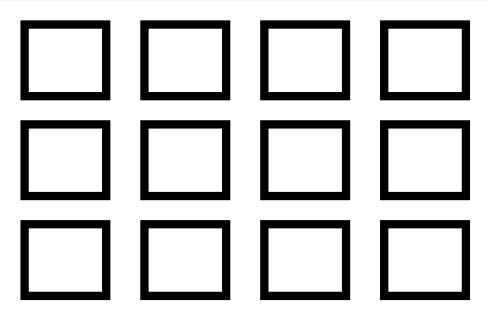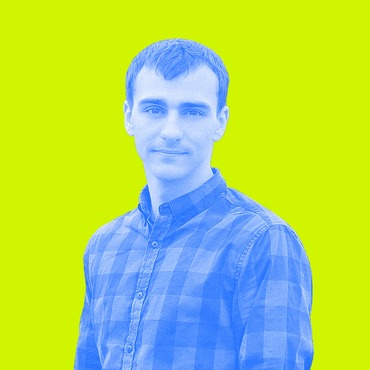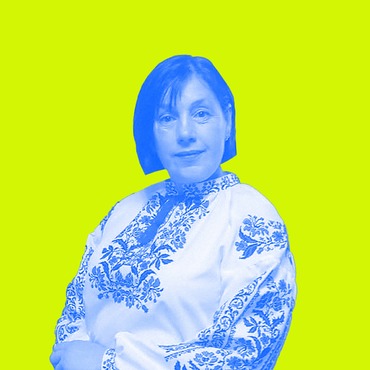‘You should treat work as something personal.’ What motivates people to drive change in their community — the experience of the Kopachivka village residents
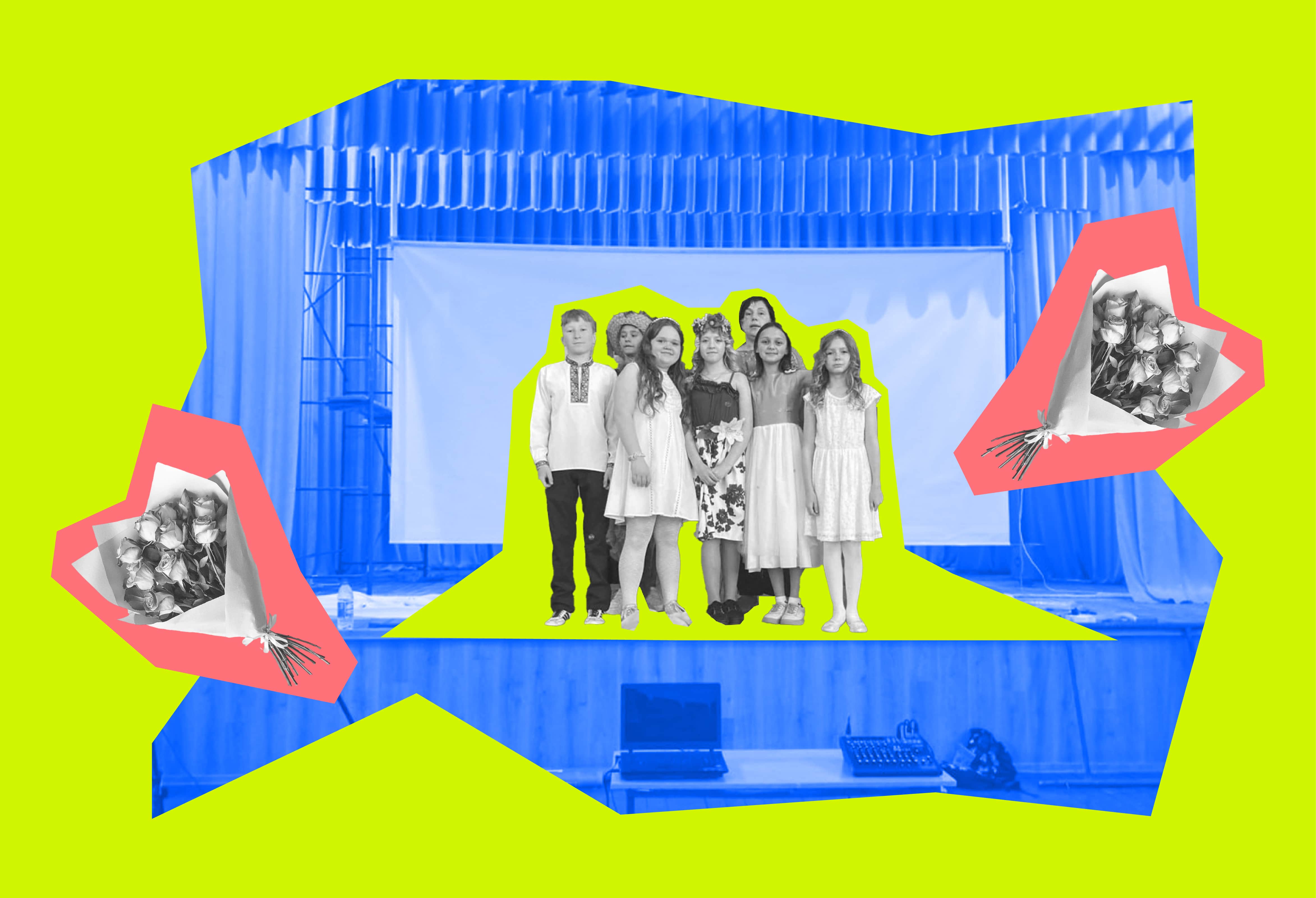
How do you turn a neglected House of Culture into the heart of village life, where young people are constantly bringing new ideas? Serhii Yanishevskyi, a 33-year-old history teacher at Kopachivka School, and Tetiana Panas, the director of the House of Culture, know how.
‘We make a good team: Serhii does the paperwork, and I negotiate with whoever I need to, source things, and get results. I always joke that I could convince the devil to sell me his soul,’ laughs Ms Tetiana.
In the village of Kopachivka, 18 kilometres from Lutsk, the ‘Did Yukhym’ (Grandpa Yukhym) youth centre was the first to appear. There, young people organised chess, ping pong, board game, and team tournament events. Later, this led to the founding of the ‘Ploshcha Molodi’ (Youth Square) NGO. Today, Kopachivka even has its own cinema hall.
We asked how it all began, what motivated them to bring about change in the community, and how the full-scale invasion shifted their focus — without weakening the villagers’ unity.
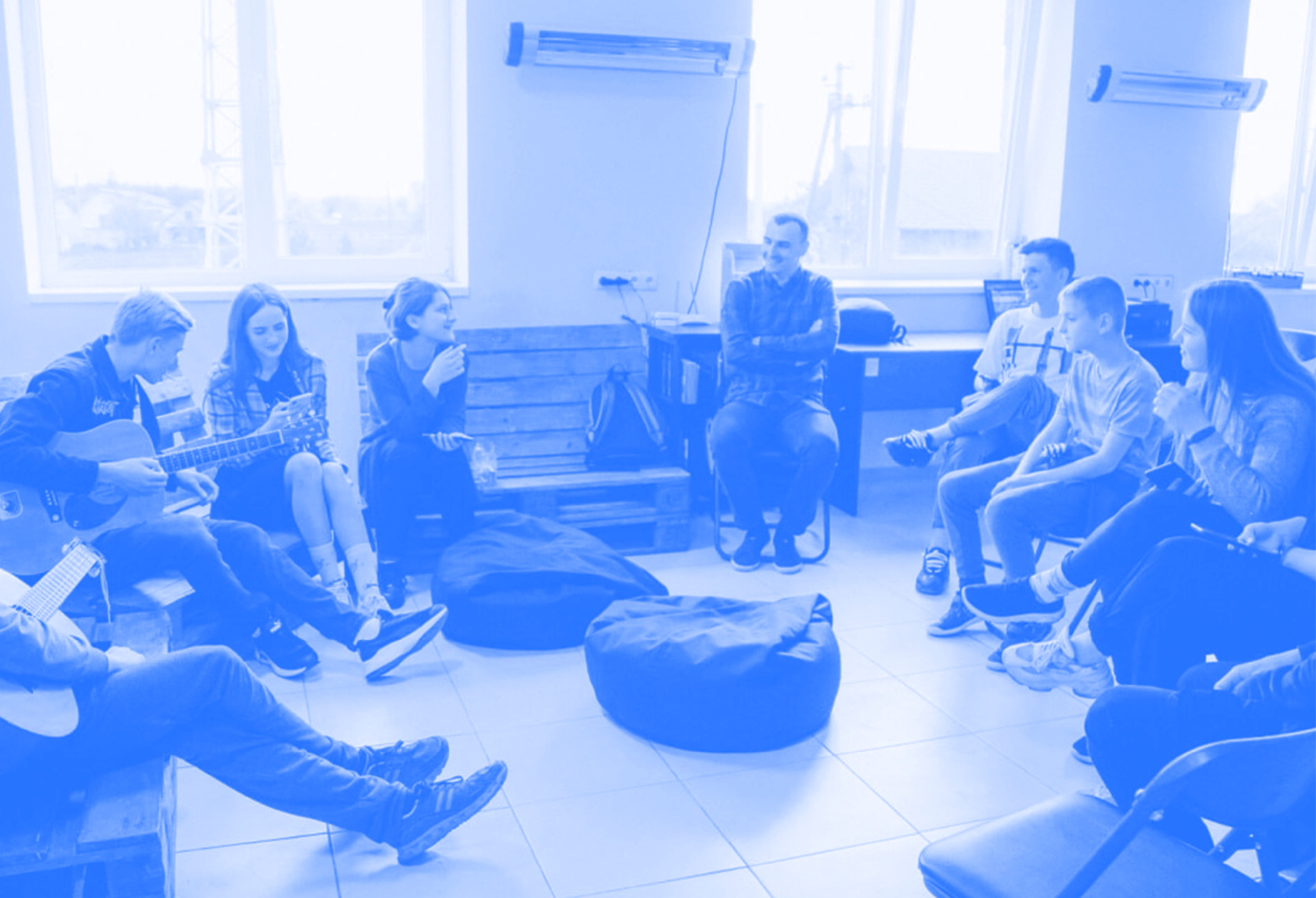
Before we got the roof replaced, windows fitted, and the concert hall refurbished, we carried out some cosmetic repairs in the lobby so there was at least somewhere to gather. The place still looked sad, but that did not stop the young people from holding stand-up shows and beauty contests — because they wanted to.
Serhii: Even before ‘Youth Square’ was formally founded, we organised fire shows and concerts. One time, we brought in drums. A real highlight was when Serhii Vasyliuk, frontman of the band ‘Tin Sontsia’ (The Sun Shadow), came to perform. He played in the lobby — in makeshift conditions — but it was something different. We started getting people used to new things.
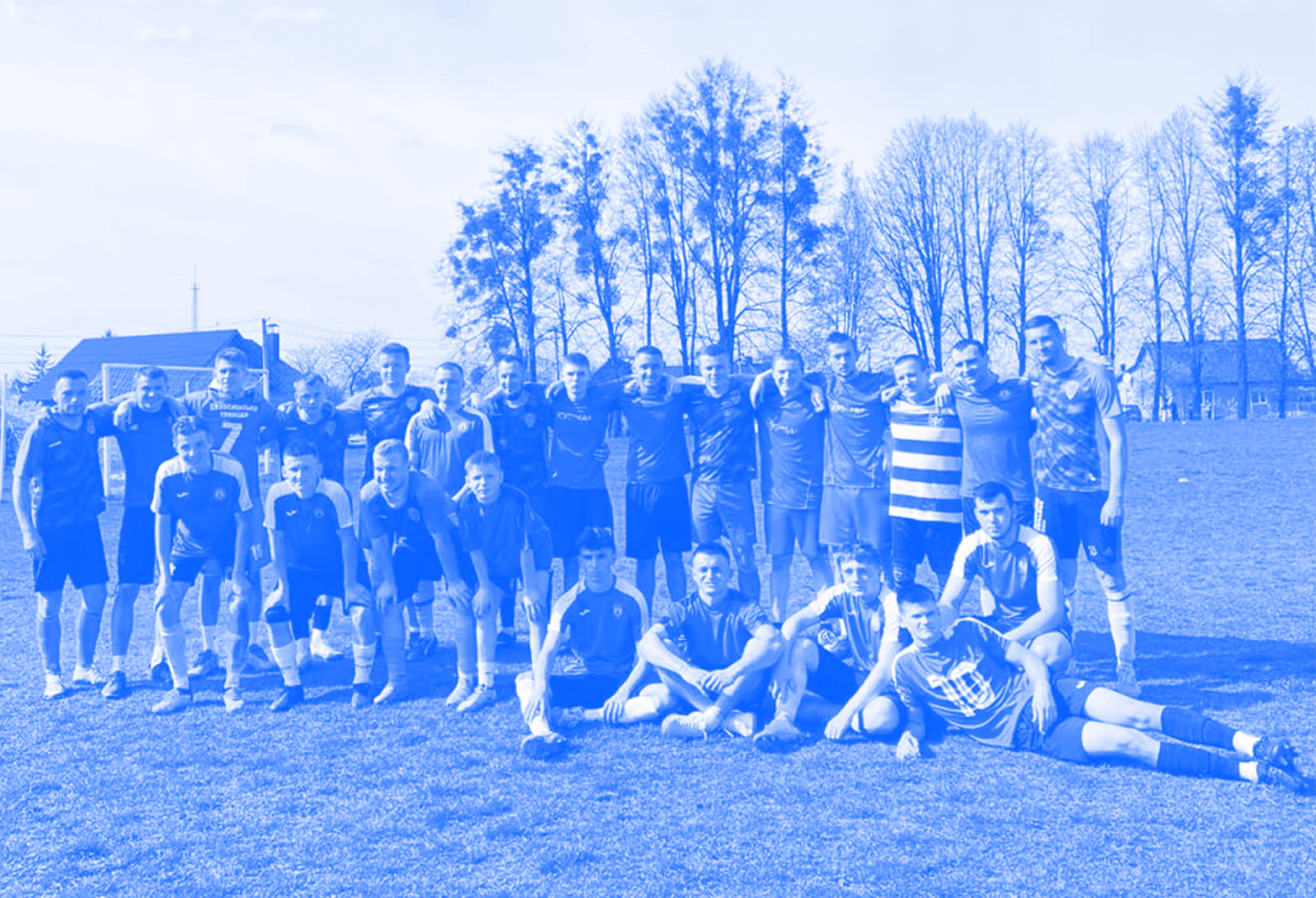
Big plans for 2022
Ms Tetiana: On 14 January 2022, we celebrated the grand reopening of the concert hall after renovation. We had so many plans for the year.
Serhii: We wanted to bring major performers to the big hall.
Ms Tetiana: And then February came.
I remember, on the third day of the invasion, a high school student wrote to me, ‘Auntie Tania, what should we do? Maybe we could draw something, make a video, show the world we are against the war. How can we help?’ I told them to stay with their parents and focus on their studies.
It was a heavy blow for the youth, but they did not lose heart. They helped prepare shelters — in the school, the House of Culture, the basement of a local shop. Our village is fairly large, and everyone wanted to contribute.
Serhii: I have never seen our residents come together like that before.
Moment of restoration
Ms Tetiana: 2022 felt like a quiet year in terms of culture. However, we did not stop for a moment — we organised fairs in support of the Armed Forces of Ukraine. Young people still came to the club, encouraging one another. Because the children who remained here had a place to go.
One girl, who is studying to become an art restorer, suggested creating a club for pre-schoolers, since the kindergarten was not operating and parents still needed to go to work.
Serhii: Many children left at that time. And yet, there were those who returned. Some travel back and forth. They bring energy and ideas.
I noticed a change of generation around the youth centre. In the early years, there was one cohort of young people who eventually moved on. Then a new group emerged — with different ideas and a fresh perspective.
Motivating yourself and others
Serhii: There are about six or seven active individuals who are always ready to take part in projects and contribute to life at the youth centre. Another active group consists mainly of younger children and older students, guided by Ms Tetiana.
Ms Tetiana: I do not chase them — I just post in the group chat, ‘We’re putting on a charity concert and a fair. I’m waiting for your ideas. Two to four performances from you. Rehearsal tomorrow.’
Sometimes it is hard to get them going. It is hard for me at times too. But it has to be done, and the children often end up inspiring themselves along the way.
We put on a charity concert every quarter. Every time, I worry no one will show up. But if children are involved — and this is a trick we have tested — their grandparents, mums, dads, and godparents will always come to watch.
Sometimes a child might freeze up on stage, but the audience always supports them. I encourage them too, reminding them that no one is born a master. Afterwards, people praise the children and thank us. We do not always manage to meet our fundraising goals quickly, but you still have to keep trying and find ways to motivate others. Because if you criticise people, they will give up.
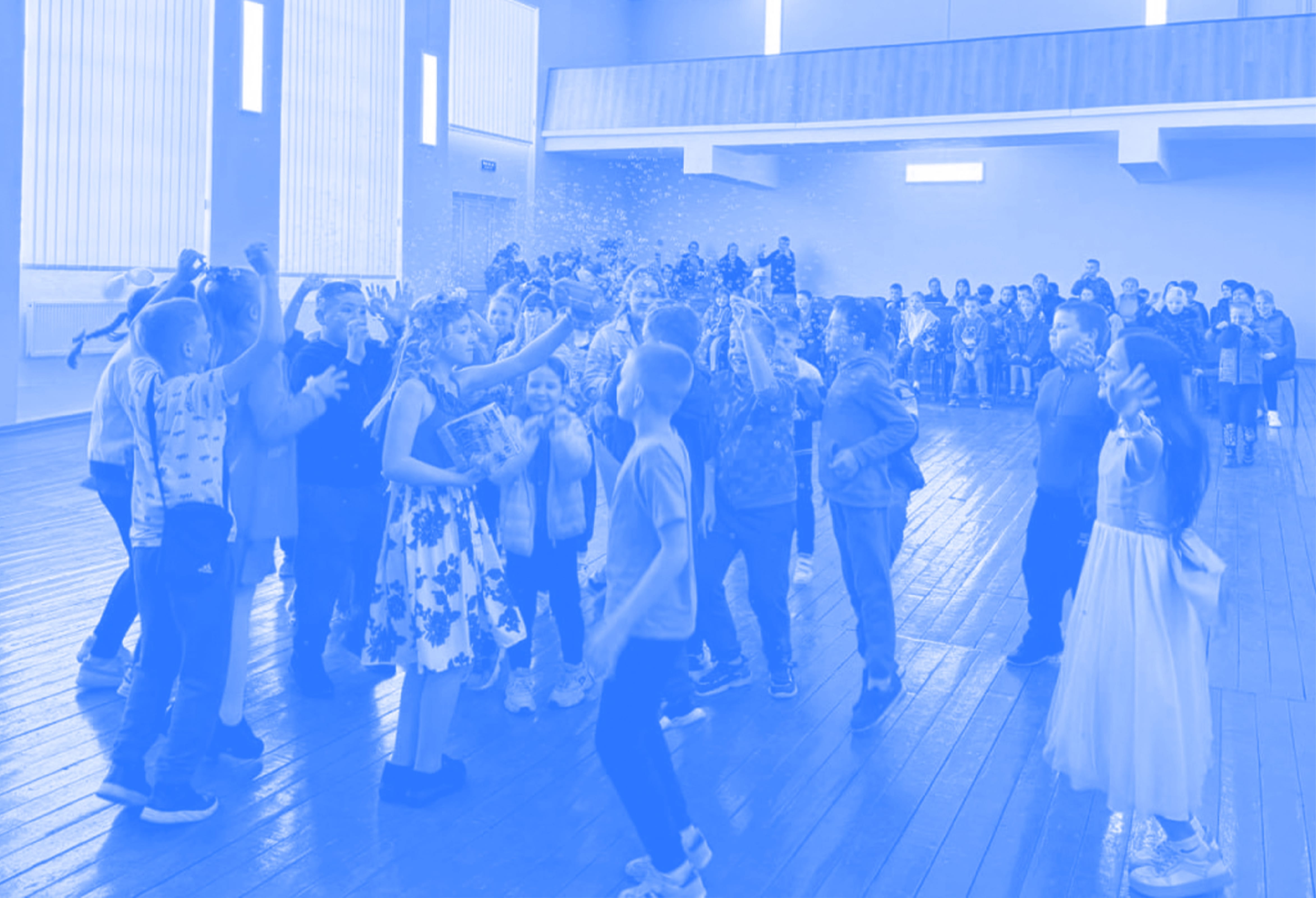
Serhii: And what motivates us? The desire to change something.
Ms Tetiana: To be useful.
Serhii: As sentimental as it might sound, it is probably all down to a love for our village. It is not always easy to find common ground with locals. When we were creating the youth centre, there were people saying, ‘There used to be a bar here — bring that back instead.’
But I do not want the village to decline. I believe the future of rural communities depends on people like Ms Tetiana and our local entrepreneurs.
Kopachivka is unique in that there is hardly any indigenous population, unlike the neighbouring village of Kremenets. People in Kremenets do things their own way. When there is a native population, the dynamics are different.
Kopachivka, on the other hand, was a Polish village until 1939. From 1945 onwards, Ukrainians began to settle here, making it a blend of people from all over the country. But that has never held us back.
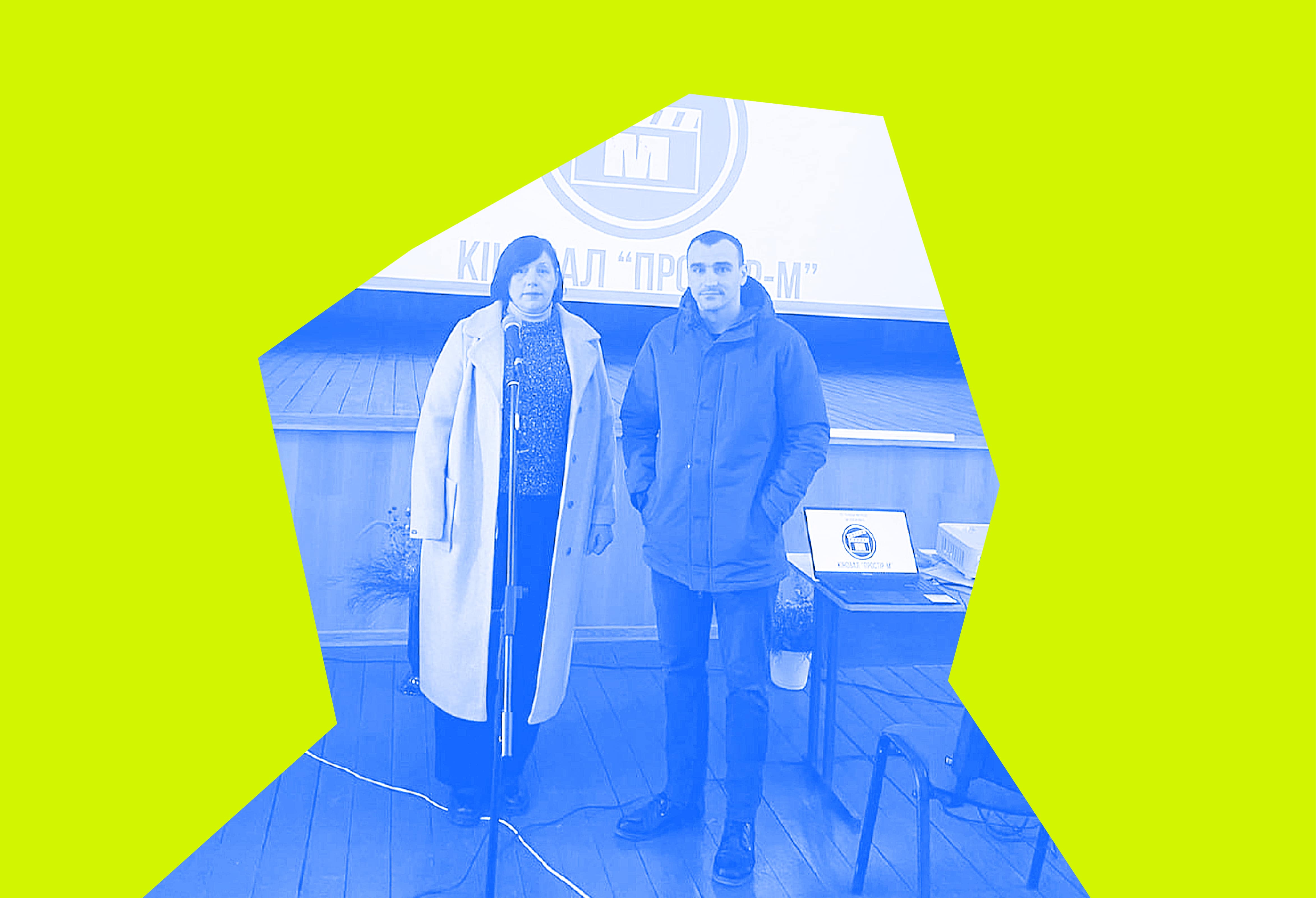
The demand for cinema
Ms Tetiana: As you can see, Serhii is an enterprising young man — a real go-getter. He is always looking for projects and opportunities. He showed me a grant from the House of Europe.
At first, I looked at the amount — it seemed small. But I understood what needed to be done, especially considering the ongoing challenges in financing culture across the country.
Alongside creating the cinema hall, we managed to bring running water into the House of Culture and build a toilet — all with a relatively modest sum of around UAH 30,000. We were lucky: there was access — a well nearby. Of course, there were complications — the lads who were meant to do the work were called to the front line. But everything eventually fell into place.
We make a good team: Serhii does the paperwork, and I negotiate with whoever I need to, source things, and get results. I always joke that I could convince the devil to sell me his soul.
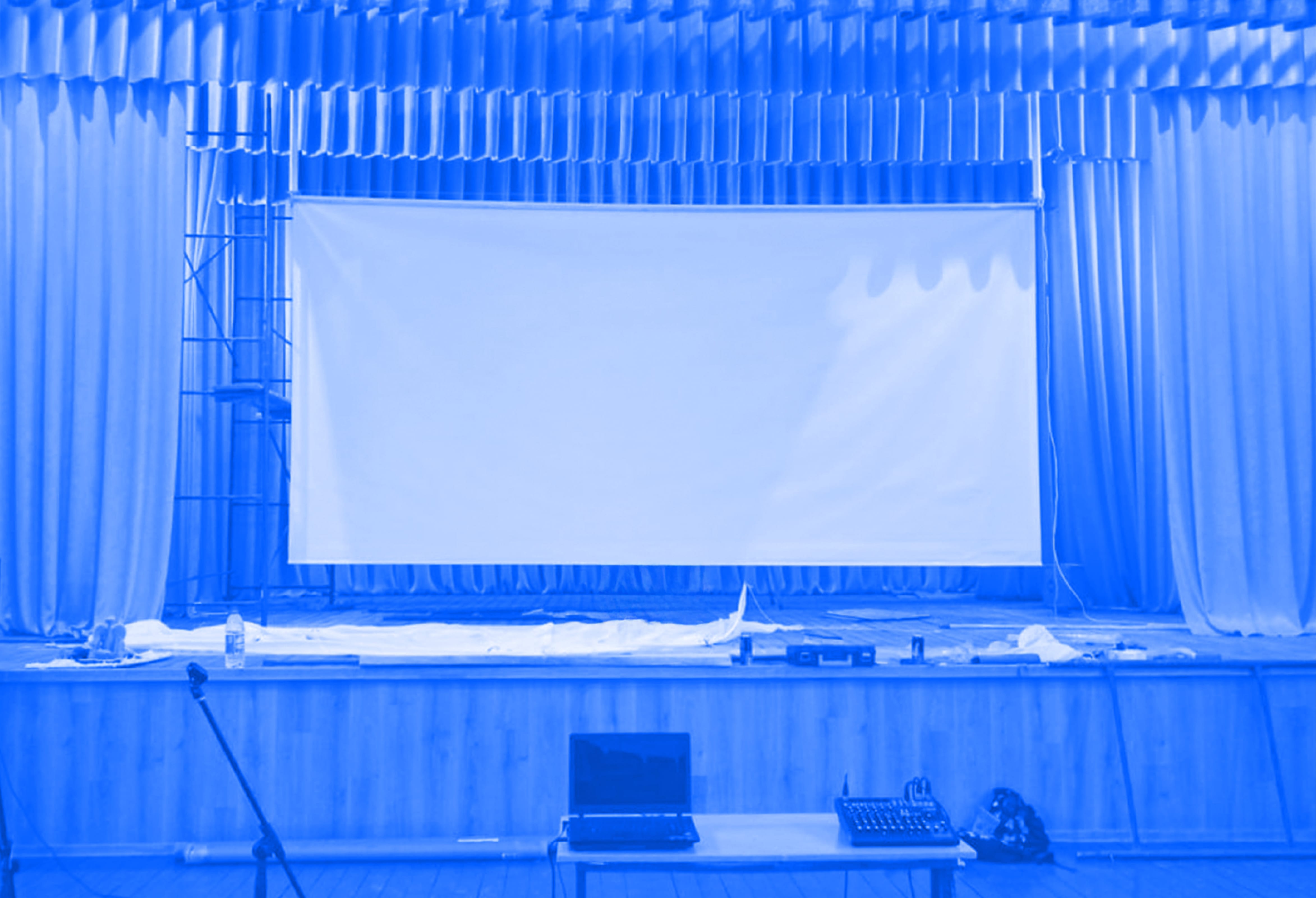
Serhii: And how did we know the village needed a cinema hall? Before, we used to organise outdoor film screenings. Ms Tetiana stitched together a massive screen from old sheets.
Ms Tetiana: A few duvet covers and a single sheet — problem solved.
Serhii: The projector was inexpensive. When we launched the ‘Grandpa Yukhym’ space, we only applied for a small amount. Still, the screenings drew in big crowds — people came to watch football matches and films. By autumn 2023, we started thinking about how to show films indoors. And that is how the idea took off.
Ms Tetiana: Now we do screenings on Sundays. People finish up their work in the garden and start asking, ‘So, will there be a film this week?’
We pick the film in our Facebook group — there is a vote by Thursday — and then we put up posters around the village.
The screenings also help with fundraising. We usually collect UAH 2,000–3,000 per showing. The smallest amount we ever raised was UAH 400. I was quite upset at the time, but a local businesswoman reassured me. She said, ‘Parents spent time with their kids — and even 400 UAH is still something!’
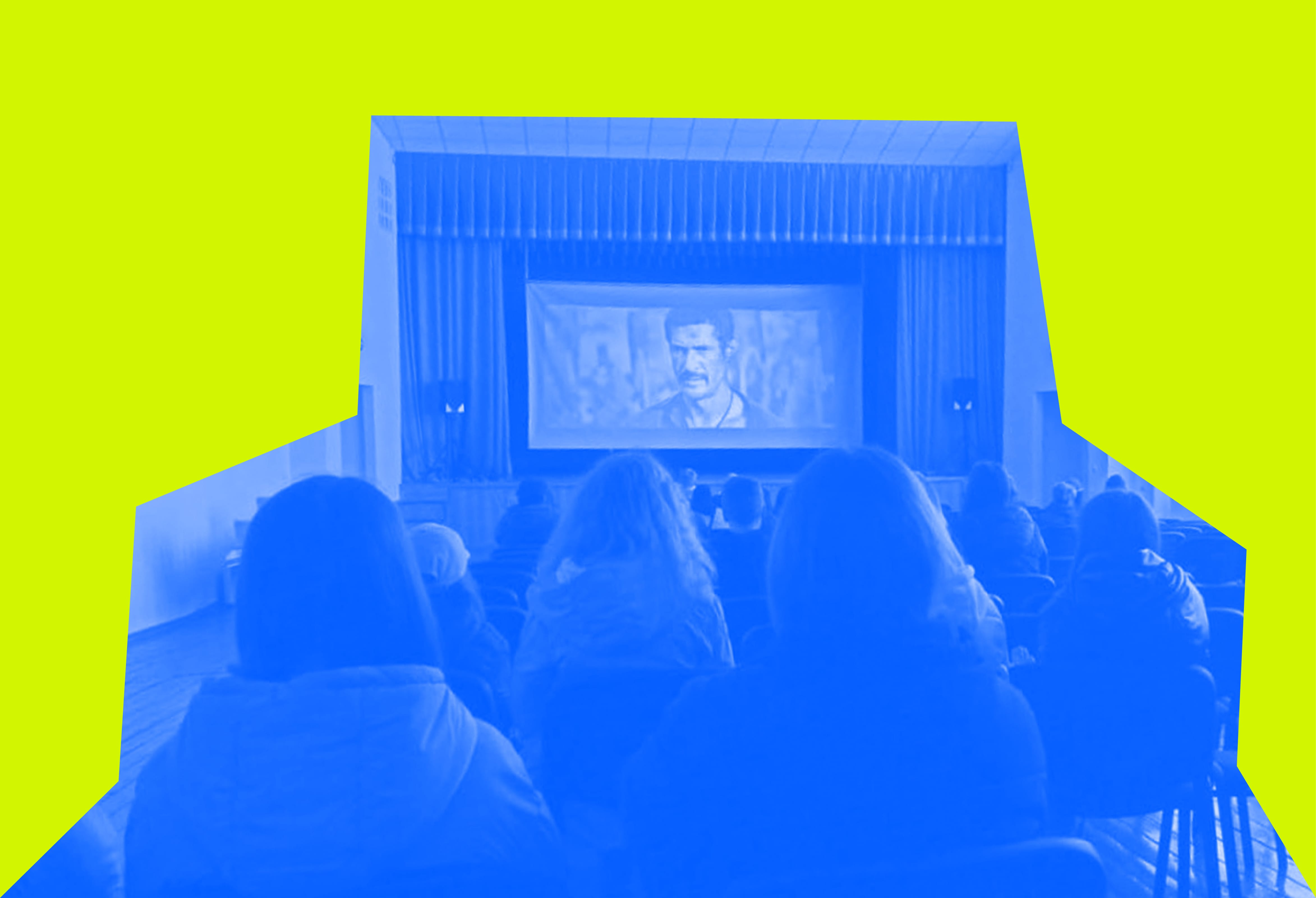
Do it for yourself
Serhii: My advice to anyone thinking about bringing change to their community? Just start. I always remember my mother’s words, ‘If you do nothing, nothing will happen.’
Sometimes you feel unmotivated. You think, ‘It’s fine, nothing bad will happen.’ But brick by brick, the wall eventually gets built.
Even without major resources, with the right people you can achieve something meaningful. And funding can be found through initiatives like House of Europe or other fundraising platforms.
Ms Tetiana: Even before the invasion, I used to say that nothing is impossible. My thinking has changed a bit since then — but one thing is certain: you must not give up. After all, you are not doing this for someone else. You are doing it for yourself. If you treat the work as something personal, it will succeed.
Text: Kateryna Amelyna
Editing: Viktoriia Osipova
Translation into English: Iryna Goyal
